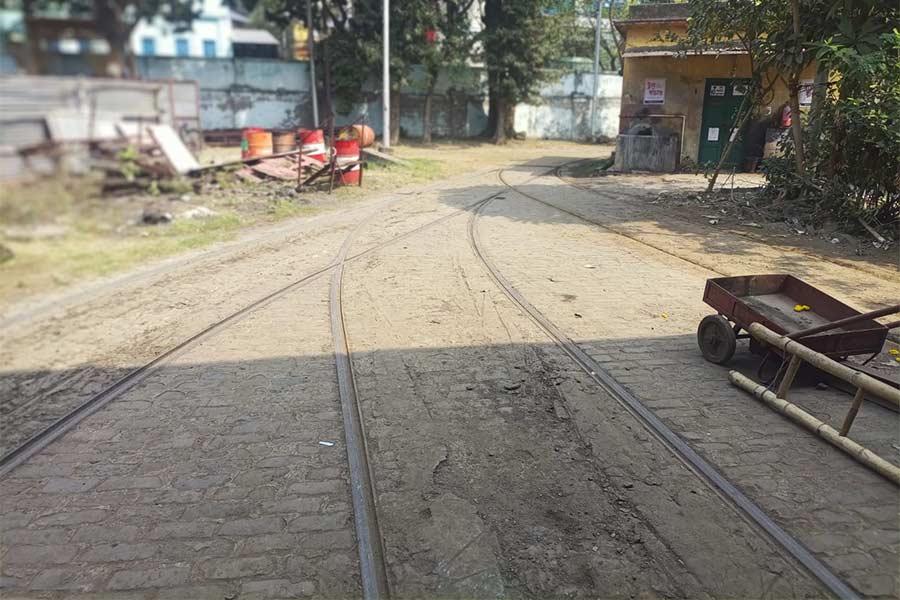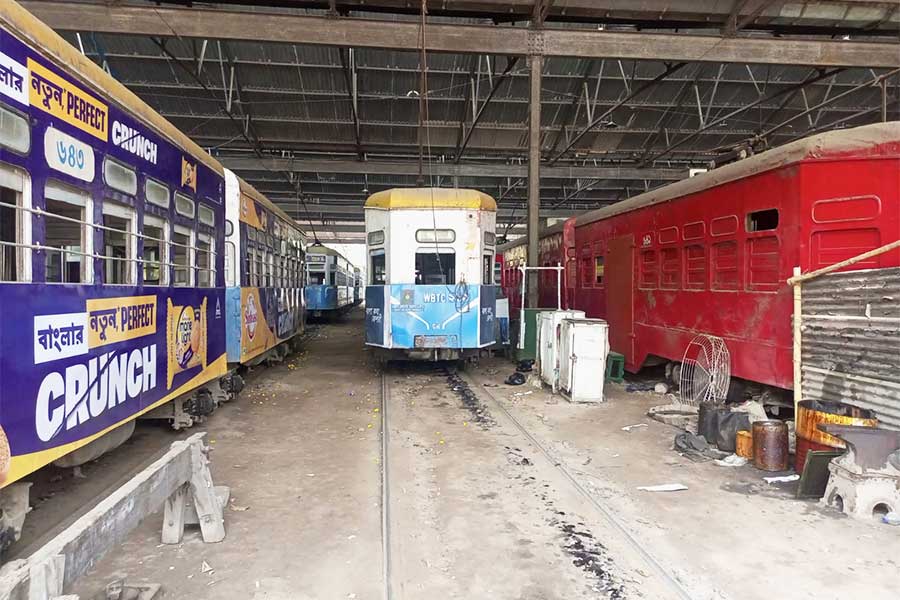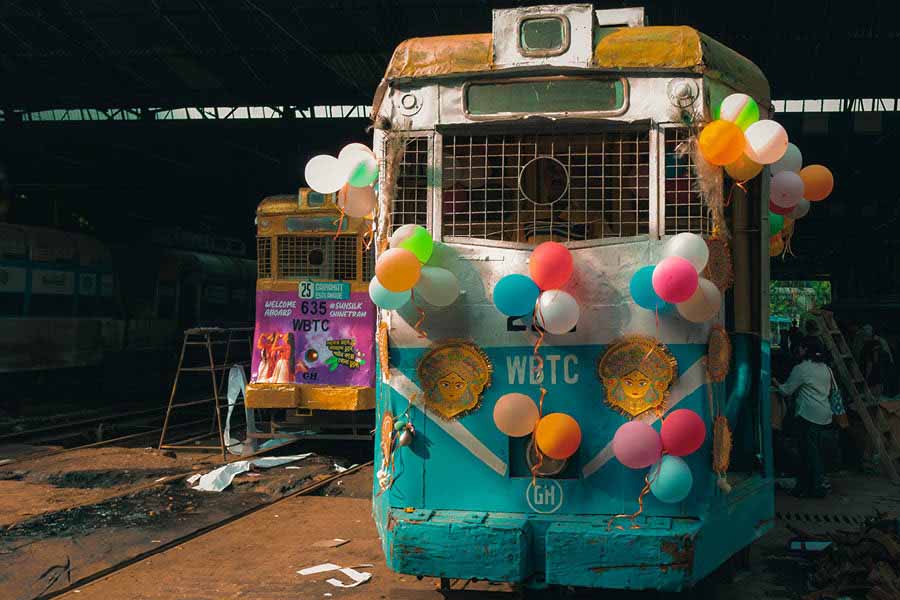Transport experts have voiced their dissent against the plan to shut down tramways in Kolkata.
The brakes on trams was initiated by the Left Front government in West Bengal in the ’90s and is about to be implemented by the Mamata Banerjee-led Trinamool Congress government. Over the past three decades, climate change and environmental considerations have worked towards a comeback for trams — an environment-friendly mode of transport.
Kolkata, however, seems to be moving on the opposite track — with West Bengal transport minister Snehasish Chakrabarty informing Calcutta High Court about its decision to stop tram services in an affidavit linked to an ongoing case about trams. The plan is to discontinue the 150-year-old tramways in Kolkata. Only the heritage route along the Maidan will be retained.
The minister reasoned the government’s decision was based on the commuters’ demand for faster modes of transport, as well as to counter congestion caused by the slow-moving trams.
The decision has been countered by both environmentalists and transport experts. In a recent meeting held in Kolkata, environment, transport and urban development experts decided to set up a committee involving key transport and environmental experts across the country. “We will come up with an interim report within a month if possible; and the detailed report will take longer,” said a person associated with the process.
Real estate and trams can coexist

Tram activists allege that the major driver behind the decision to withdraw service is the sprawling land available in the heart of the city where the eight tram depots stand
“Trams should not be seen as a heritage transport in Kolkata, but as an effective node in its transport infrastructure like in so many other cities in the world,” said Bhargab Maitra, a transport expert and professor at IIT Kharagpur. “The concerns of the government and commuters can be addressed effectively through detailed techno-management studies”.
Anumita Roy Chowdhury, an air pollution and transport expert with the Centre for Science and Environment (CSE), said there is no conflict between real estate and tramways. “It is possible to integrate real estate development on tram land alongside tramways, as is being done in Hong Kong and elsewhere,” she said.
Tram activists allege that the major driver behind the decision to withdraw service is the sprawling land available in the heart of the city where the eight tram depots stand. The prize land could fetch hundreds of crores for the cash-starved state government. “Parts of several depots have already been handed over to private entities and the latest step has been taken to expedite the process,” said Mahadeb Shi, secretary of Calcutta Tram Users Association (CTUA), which has moved court in 2022 to save the tramways.
Roychoudhury argued that trams can hardly be blamed for traffic congestion. Instead, it creates none of the problems associated with carbon intensive transport infrastructure.
“There is no evidence that roads with trams face more congestion compared to those that do not have trams,” said Roychoudhury. “We are adding 87,000 vehicles a year and if we do not encourage mass public transport like trams, the city will soon just cease to move.”
Tathagata Chatterjee, another ace urban development expert, presented several examples across the world to underline how trams have made a comeback not only for environmental reasons but also as an effective transport mode.
Decline by design

Green activists complain that the slide has been engineered more by design than default
Trams, once a favoured mode of transport, earlier ran on close to 40 routes. But steady decline since the ’90s meant that tram services are at present available only on three routes. Green activists complain that the slide has been engineered more by design than default and senior tram officials seem to agree.
“The number reduced significantly since Cyclone Amphan caused widespread damage to the overhead wire network of trams. The collapse of bridges also led the police to bar trams from all bridges though the public works department wrote to tramway authorities that running of trams on flyovers does not impact the flyovers,” a senior tram official said.
“Trams have been made to become unreliable and ineffective, pushing them towards a natural death with gradual decrease of routes and cars, poor scheduling, poor maintenance of tracks and overhead wires and poor planning like creating tram stops in the middle of the road,” a tram activist said.
Environment activist Naba Datta, secretary of the Sabuj Mancha, said the state government should have tried to revive trams. Trade unions urged the transport minister to reverse the decision that would render about 2,500 jobless.
“Instead of winding up tram services, trams should be used as feeder links to the expanding Metro network,” said Banani Kakkar of nonprofit PUBLIC that has also moved court over the issue.
Police should not have the final say
A division bench of the high court, led by chief justice T.S. Sivagnanam, has questioned the role of the police in stopping trams and ordered formation of a committee involving both government and civil society representatives to find a way to restore tram services in Kolkata.
In its last order, promulgated on December 11, 2023, the bench reminded the state government, in response to its submission arguing in favour of closing down tram system in the city, that “the committee has been constituted for the purpose of ensuring restoration of the tram services and not otherwise”. It also said that the Kolkata Police’s opinion about stopping trams “cannot be taken to be the final”.
So far, three orders urging the state government to retain trams have been passed by a division bench of the high court
In its first order, the bench observed that “the authorities have taken a decision to suspend the tram services or to restrict its operations” and opined that the authorities “have not had a broader vision of the whole concept of operating tram services in Kolkata”.
Activists, part of the committee, alleged that the government is not serious about reviving trams and complained that their views in the meeting were not adequately considered.
Pradip Kakkar of PUBLIC, one of the petitioners and a member of the committee, recently wrote to the tram authorities, alleging that the high court order about not putting bitumen on tracks till the case is disposed of has been violated and warned that she would move court with a contempt appeal unless the issue was addressed soon.


